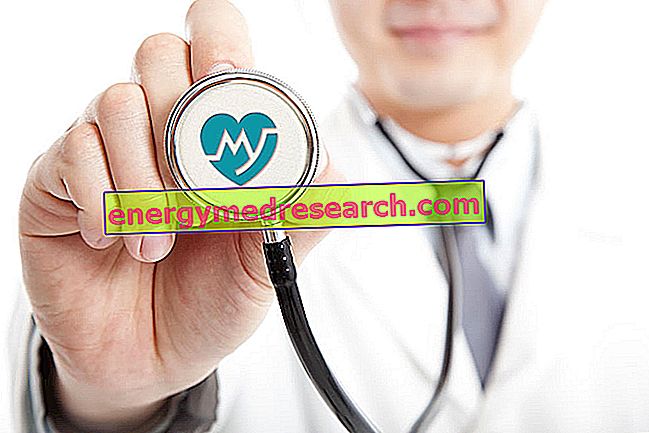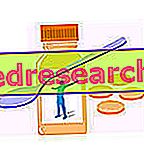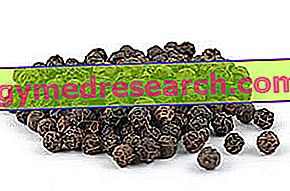Definition
Kawasaki disease (or mucocutaneous lymph node syndrome) is one of the hypothetical diseases with infectious / autoimmune etiology: we are talking about an acute inflammation of the blood vessels (vasculitis), always accompanied by a very high fever. This pathology, which affects almost exclusively children up to the fourth year of life, can also affect lymph nodes, mucous membranes and skin of the nose and mouth.
Causes
For the explanation of the causes triggering the Kawasaki disease, only hypotheses have been formulated, but there is no scientifically proven proof; however, among the potentially involved etiological factors, bacterial and virus infections, mercury poisoning, allergies and autoimmune diseases are the most accredited hypotheses.
Symptoms
A high fever is an element that is common to all Kawasaki disease patients; in addition to the alteration of body temperature, the disease can be associated with mood alteration, swollen lymph nodes, red and chapped lips, strawberry tongue, red eyes, reddened and dehydrated skin, skin rash, septicemic shock, thrombocytosis, pleural effusion .
Information on Kawasaki Diseases - Kawasaki Disease Treatment Drugs is not intended to replace the direct relationship between health professional and patient. Always consult your doctor and / or specialist before taking Kawasaki Disease - Kawasaki Disease Medications.
drugs
Despite the rather frightening clinical manifestations, Kawasaki's disease is generally treatable and totally reversible, without complications; it is estimated that only 1-2% of affected patients cannot survive, probably due to the lack of pharmacological treatment.
The disease, as mentioned above, can arise up to 4 years of a child's life; from the very first symptoms, it is recommended to subject the child to a careful medical check-up, for diagnostic confirmation. The first objective of the treatment is to reduce fever, which is always very high, and inflammation, to prevent any complications to the heart.
The therapy involves administering intravenous immunoglobulins, often associated with aspirin; in case of no response, monoclonal antibodies can be administered.
- Acetylsalicylic acid (eg aspirin, aspirin, cardioaspirin): indicated to treat high fever in children with Kawasaki disease; it is recommended to always respect the dosage, since acetylsalicylic acid, in children under 12 years of age, can cause serious problems, such as Reye's syndrome. Consult your doctor. Initially, administer 80-100 mg / kg of drug per day, orally or rectally, divided into 4 doses, every 4-6 hours, for 14 days, or up to 48 hours after the fever has regressed completely. The maintenance dose, to be taken during the post-febrile period, foresees taking 3-5 mg of drug a day, rectally or orally, once a day. Patients who do not complain of coronary artery abnormalities may continue to administer the drug for 6-8 weeks; otherwise the dosage should be reduced. Consult your doctor. The drug can be formulated in tablets containing also other active ingredients, such as Aluminum hydroxide, Calcium Carbonate and Magnesium hydroxide (eg Ascriptin): in this case, it is recommended to start the administration of the drug with 80-100 mg / kg of aspirin, to be taken orally, in 4 daily doses. The maintenance dose is expected to take 3-5 mg / kg of aspirin, once a day. Consult your doctor.
- Clopidogrel (Plavix, Zyllt, Zylagren, Zopya, Iscover, Grepid, Clopidogrel Winthrop, Clopidogrel Acino): the drug is a second choice platelet antiplatelet used in therapy against Kawasaki disease associated with heart disease. The antiplatelet activity of clopidogrel is useful to prevent the formation of thrombi (blood clots) in the arteries of the patient suffering from Kawasaki disease. The dosage and method of administration of the drug must be established by the doctor on the basis of the severity of the disease and the response to treatment.
- Warfarin (eg. Coumadin): the therapeutic utility of this drug is comparable to that of clopidogrel; warfarin is prescribed in children with Kawasaki disease concomitantly with heart problems. The dosage should be established by the doctor.
- Human normal immunoglobulin (eg Privigen, Kiovig, Flebogammadif): for the treatment of Kawasaki disease, administer the drug by intravenous infusion at an indicative dose of 2000 mg / kg, in a single dose of 10-12 hours. It is possible to administer the drug in combination with aspirin. When symptoms persist 36 hours after the end of the infusion, a second dose of 2g / kg can be given. Consult your doctor.
- Infliximab (eg Remicade): the drug, belonging to the class of antirheumatics, is used in therapy against Kawasaki's disease when treatment with other drugs is not beneficial. Indicated for children over 3 years: it is recommended to take 5mg / kg of drug intravenously. Repeat the administration on days 45, 59 and 89. Consult your doctor.
Steroids can also be administered in case of known Kawasaki disease, useful for reducing inflammation, swelling and pain; steroid drug therapy can prevent immune system disorders. Do not stop steroid therapy before medical consultation.



